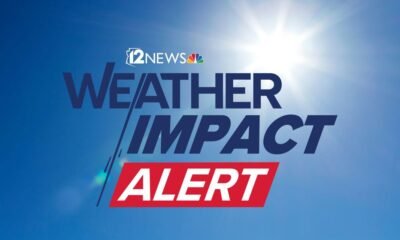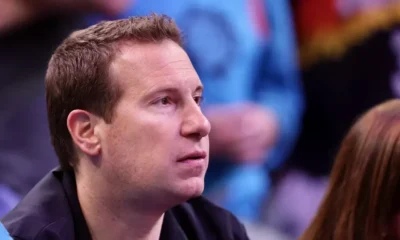arizona
I-Team Investigates: The Struggle of Arizona Students with Math and Reading Proficiency

When Nicole Furuta relocated to Arizona, she was aware of the state’s educational struggles. However, the stark reality was beyond her expectations. “We were used to a 20:1 ratio,” she recalled, contrasting the 30-plus student ratios in Arizona’s classrooms. With Arizona consistently ranking low in education metrics, including teacher pay and student performance, concerns about accountability within overcrowded classrooms are mounting.
This backdrop led the 12News I-Team to investigate Arizona’s educational system. Their analysis focused on Maricopa County’s largest school districts, revealing a troubling trend: in 2024, more than half of students in each district failed to achieve proficiency in vital subjects like math and reading. Furthermore, the exclusion of private school data complicates comparisons as these institutions are not mandated to report state test scores.
The I-Team sought input from parents and educators through an informal survey, gathering nearly 80 perspectives on the issue. Furuta, a mother of two, identified potential flaws in teaching strategies, which she believes hamper her children’s math proficiency. “I don’t understand why they transition from one lesson to the next without mastering the first,” she noted, highlighting the drastic differences in current curricula compared to her own schooling.
Conversely, some in the community, like Craig Beckman, prioritize other school-related issues over test scores. As a parent and an administrator in the Deer Valley Unified School District, he underscores that school safety and emotional well-being often take precedence in parental concerns. “School is about more than test scores,” he stated, pointing to external societal factors that affect educational outcomes.
In the East Valley, another parent, who chose to remain anonymous, echoed that sentiment, observing a marked decline in students’ interest in reading as they advance in grade levels. He believes fostering strong relationships between parents, teachers, and students is crucial to addressing learning deficits. “If they’re behind, it is definitely very difficult to catch up,” he explained.
Survey findings revealed that multiple factors contribute to Arizona’s poor academic performance, including: increased screen time, lack of parental involvement, large classroom sizes, absenteeism, migration to private schools, and behavioral issues. Could tailored education, rather than a one-size-fits-all curriculum, address these challenges? Furuta certainly thinks so, emphasizing the need for individualized learning approaches.
Dr. Curtis Finch, Superintendent of Deer Valley Unified School District, is acutely aware of Arizona’s funding crisis. “We know that Arizona is the worst in the nation,” he said, as he highlighted the detrimental effects of insufficient financial support on educational quality. Despite the funding challenges, Dr. Finch remains focused on student success, showcasing the district’s achievements amidst adversity.
He articulated the belief that tests measure progress rather than proficiency, comparing the education journey to driving skills. “If you are getting ready to take your driver’s test… and they don’t know how to parallel park, does that mean they do not know how to drive?” he posed, illustrating that students still have the potential to succeed. Nevertheless, funding remains a significant barrier to educational improvement, particularly with ongoing voucher programs that divert resources from public schools.
Arizona’s Superintendent of Public Instruction, Tom Horne, has a different perspective on the issue. He contends that the problems stem from teacher skills rather than funding alone. “There’s a major misunderstanding in that position,” he stated, insisting that the departure of students from public schools does not eliminate the associated costs for their education.
Despite ongoing efforts to improve test scores, including sending reading and math coaches to struggling schools, the challenges of economic resources loom large. Horne acknowledges that raising teacher salaries is a continuous struggle in state politics, exacerbating the educational enigma. As parents like Furuta passionately advocate for high expectations and better outcomes, the quest for reform in Arizona’s educational system continues.


















